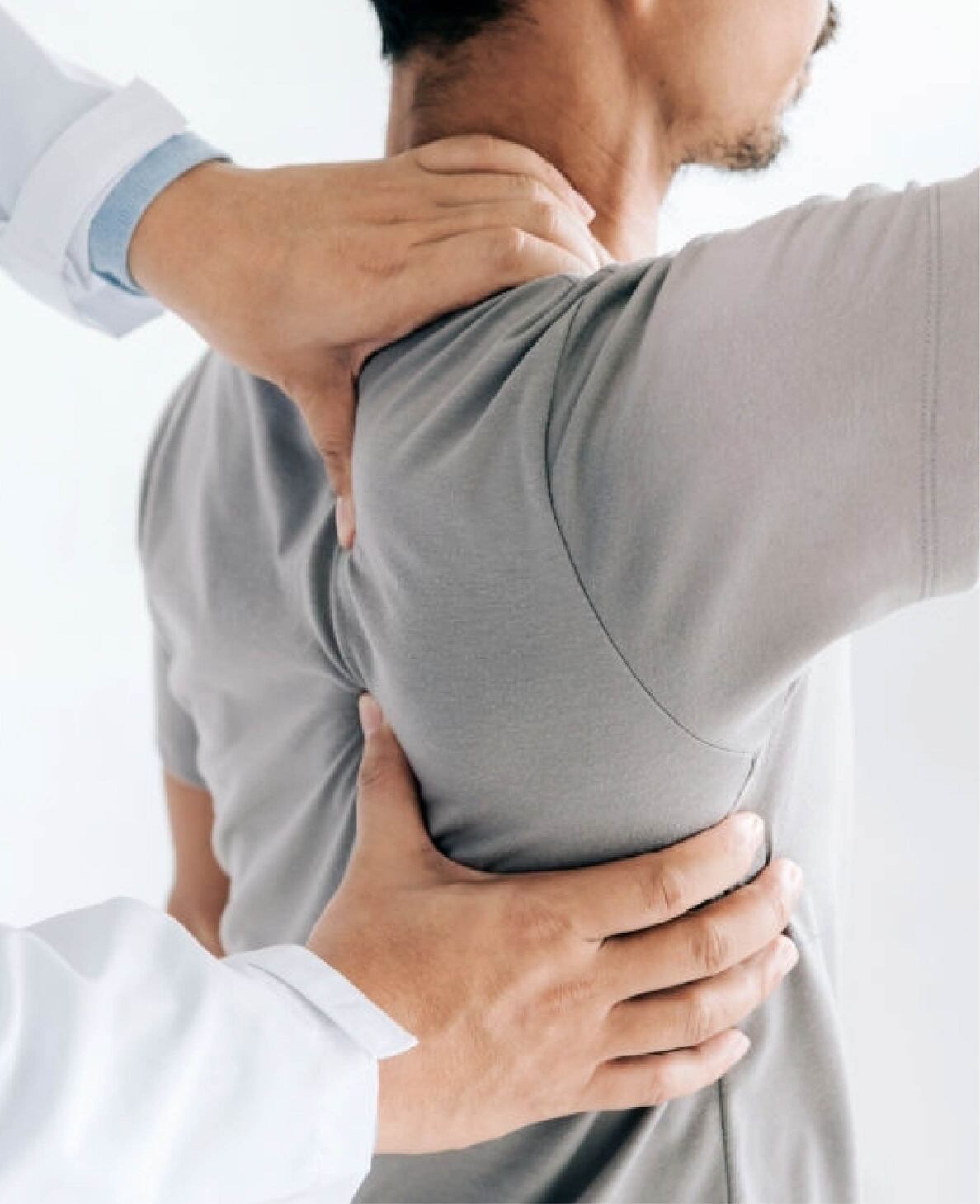Physiotherapy
Get back into shape
The department of physiotherapy takes care of almost all the patients who visit the hospital. Physiotherapy is an important part of managing medical conditions of heart, bones, and brain. It offers supportive measures to patients who are very ill. Physiotherapy is an essential aspect of rehabilitation for stable patients.
Physiotherapy plays an important role in bringing back the patient to productive and functional life. Its goal is to enhance mobility, restore function, reduce pain, and stop any further injury from occurring through the use of different methods that include exercises and stretches.
It uses a whole person approach to look after the health and well being of the person. At the core of physiotherapy, there’s involvement of the patient in his/her health care through awareness, education, empowerment, and participation in their own treatment.

For 3 to 4 days, all patients who are admitted, are given post-operative treatment and rehabilitation for non-operated cases until discharge. They are told what they should avoid doing and what they should do to ensure their health stays good. They are also counseled about home care and continuation of treatment.
Patients who suffer from arthritis, trauma and orthopedic patients who have been operated on, come to OPD regularly and form the bulk of OPD practice. Patients suffering from Parkinson’s disease, stroke, peripheral nerve injuries, Saturday night palsy, Bell’s palsy, and those who have been operated on for tendon and nerve injuries frequently visit the department for treatment. Patients with COPD, bronchial asthma, bronchiectasis, and bypass visit the department to learn breathing exercises and get recommendations about lifestyle changes to become or stay healthy and fit.
Benefits of physiotherapy
Depending on what the reason for treatment is the benefits of physiotherapy are as follows:
- Avoiding surgery
- Better movement and mobility
- Management of pain with less need of opioids
- Prevention of fall
- Recovery from injury or trauma
- Recovery from stroke or paralysis
- Better balance
- Management of age-related medical problems
Types of therapies
- Orthopedic physical therapy: It is used to treat musculoskeletal injuries. Joint mobilization, strength training, manual therapy, mobility training, etc. are helpful.
- Geriatric physical therapy: It is used to treat conditions that affect mobility and physical function in older people.
- Neurological physical therapy: It is used to treat neurological conditions. The goal of treatment is to increase the responsiveness of limb, treat paralysis, and reverse increase muscle strength by reducing muscle atrophy.
- Cardiovascular and pulmonary rehabilitation: It is used to treat people who have cardiopulmonary conditions or undergone surgical procedures.
- Pediatric physical therapy: It treats conditions of infants, children, and adolescents.
- Wound care therapy: It helps in making sure that the wound is getting enough oxygen and blood by the way of better circulation.
- Vestibular therapy: It treats balance problems that are caused due to inner ear conditions.
- Decongestive therapy: It helps in drainage of accumulated fluid in patients with conditions, such as lymphedema.
- Pelvic floor rehabilitation: It is used to treat urinary or fecal incontinence, pain in pelvis, and urinary urgency that occur due to injuries, surgery, or certain conditions.

Prasad Hospital is a multi-speciality hospital located in Brahmpura, Muzaffarpur. Backed by a team of experienced doctors, Prasad Hospital is known for its dedication to provide affordable healthcare.
Address
Prasad Hospital, Brahmpura, Muzaffarpur, Bihar-842003
prasadhospitalmuzaffarpur@gmail.com
Phone
9570996625 / 9570996640
